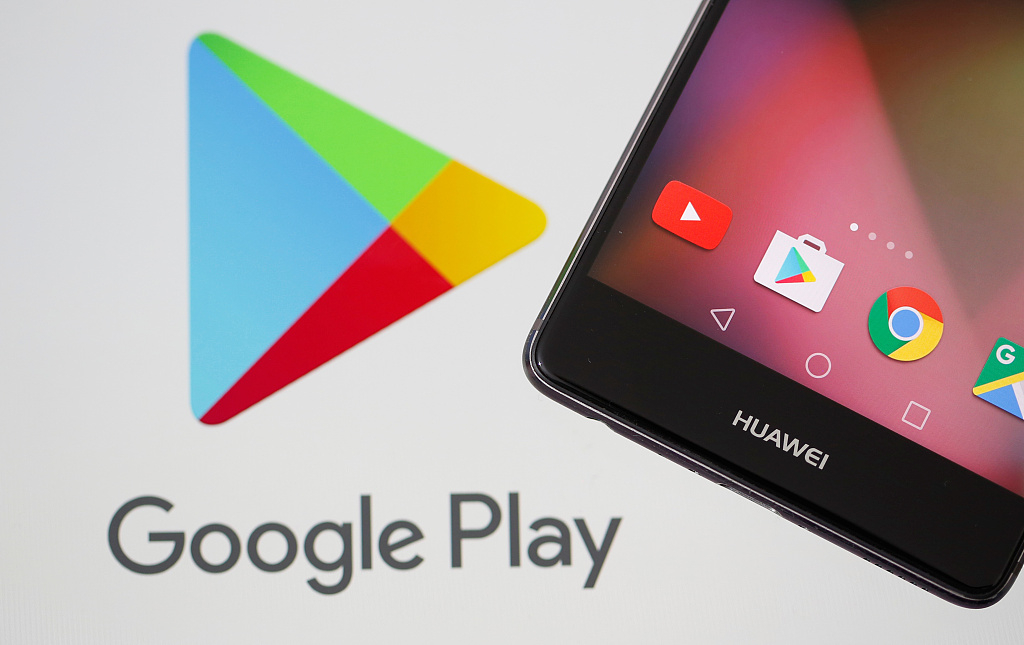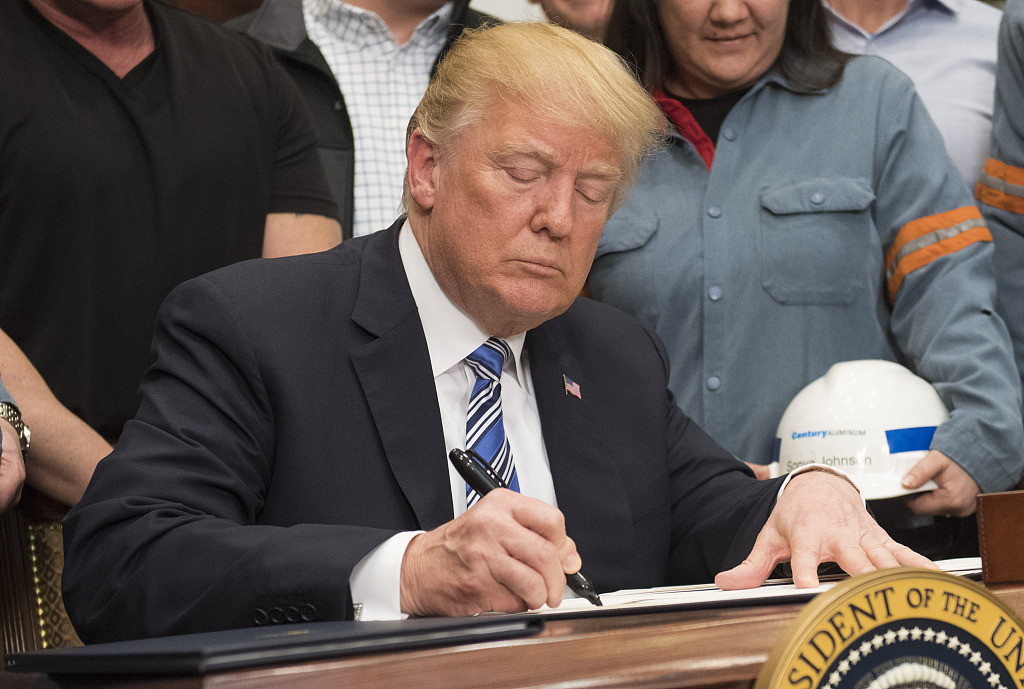
Opinion
21:07, 24-May-2019
Inclusive, rational attitude can save Huawei from crosshairs of U.S.
Yang Chuchu

Editor's note: This article is based on an interview with Li Haidong, a professor at the Institute of International Relations at the China Foreign Affairs University (CFAU). The article reflects the author's opinion, and not necessarily the views of CGTN.
While Huawei itself is facing U.S. sanctions, the statement made by Huawei CEO Ren Zhengfei in a recent interview with CCTV reflects that the majority of Chinese still embrace reform and opening-up, and hope for China-U.S. negotiations to return to the rational track.
Over the past week, the Donald Trump administration has taken unprecedented steps against Huawei, banning U.S. companies from doing business with it. Companies including Google, Qualcomm, and Intel have reportedly cut ties with the Chinese tech giant.
Now with the world's second-largest smartphone maker landing in hot water with the U.S., Ren's response gave people clues about Huawei's stance and the big picture, which struck a chord with netizens and gained high praise on social media.
Many netizens lent their support to Ren's insights over the Huawei dilemma, the protracted Sino-U.S. trade frictions and China's opening-up policy, praising Ren for his reasoning and open mindedness.
"Ren's statement on opening-up and isolation shows his foresight on mutual benefit and long-term interests,” one Weibo user commented.
Li Haidong, a professor at the Institute of International Relations at the China Foreign Affairs University, echoed this view.
"Ren's words show that most people in China have realized the importance of reform and opening-up, and that embracing the international community is in line with China's basic and long-term interests," he noted.

Google decided to break ties with Huawei in line with Washington's ban of the Chinese tech giant. /VCG Photo
Google decided to break ties with Huawei in line with Washington's ban of the Chinese tech giant. /VCG Photo
In his interview, Ren showed his commitment to opening-up, saying that the future of China rests on an open policy while populism is detrimental to the country's development.
In the past 40 years, China realized solid development by sticking to its reform and opening-up policy, and gained increasing and wide-range influence in the world, turning from a poor country to the world's second-largest economy. From 1978 to 2017, the country's total GDP went from 149.54 billion U.S. dollars to 12.24 trillion U.S. dollars.
"The public, experiencing the huge changes in China, has deeply realized that only by sticking to an inclusive, open and forward-looking mentality can China keep its prosperity and development," Li said.
Ren highlighted the importance of global innovation instead of self-dependent innovation. In Ren's opinion, it is hard for Huawei to succeed by totally relying on self-dependent innovation. Under this principle, Huawei has set up dozens of research centers globally to absorb top talents, and help the company win a leading position in 5G technology.
Against the background of escalating China-U.S. trade frictions, many have linked Huawei's dilemma to the trade war, raising concerns about the possibility of the U.S. using Huawei as a bargaining chip. Trump's words on Thursday seem to back this analysis. "If we made a deal, I could imagine Huawei being possibly included in some form or some part of it," he said.

President Donald Trump signs a proclamation applying tariffs to steel and aluminum imports in Washington, D.C., March 8, 2018. /VCG Photo
President Donald Trump signs a proclamation applying tariffs to steel and aluminum imports in Washington, D.C., March 8, 2018. /VCG Photo
In regards to the U.S. sanctions, Ren said that Huawei foresaw its clashes with the U.S., which was only a matter of time, and that his company had made preparations for this scenario. Meanwhile, he emphasized that Huawei will not rashly or narrowly exclude the use of U.S. chips, adding that Huawei will not be isolated from the world.
In fact, clashes are inevitable not only as Huawei rises, but also as China rises. According to Li, "it is normal for countries to have trade frictions. Ren's attitude toward frictions has shown that most Chinese people hope to solve differences and frictions under the principle of mutual respect and benefit." However, the U.S. tried to force China to accept its unilateral claims, which cannot be accepted by the Chinese people and government.
China and the U.S. have long been a tightly integrated unit, with close economic and trade relations. China is the largest trading partner of the U.S., with trade volume amounting to 659.8 billion U.S. dollars in 2018, according to the Office of the U.S. Trade Representative (USTR).
In Li's views, the public in China and the U.S. is aware of the importance of bilateral ties. With the ongoing trade war, consumers, manufacturers and retailers will have to pay for tariffs. Based on data from USTR, of the 200 billion U.S. dollars' worth of Chinese imports now subject to 25 percent tariffs, about 40 percent are consumer goods such as furniture and electrical equipment.
"The mainstream opinion in China is looking forward to stable, coordinating and reciprocal Sino-U.S. relations," Li concluded.
(If you want to contribute and have specific expertise, please contact us at opinions@cgtn.com.)

SITEMAP
Copyright © 2018 CGTN. Beijing ICP prepared NO.16065310-3
Copyright © 2018 CGTN. Beijing ICP prepared NO.16065310-3